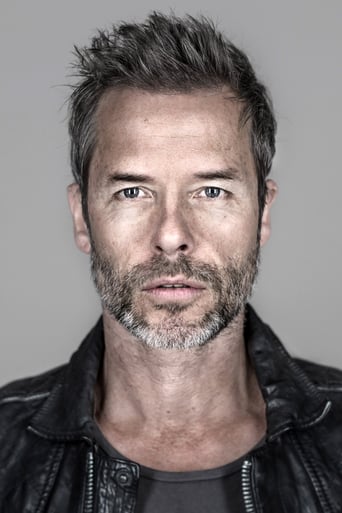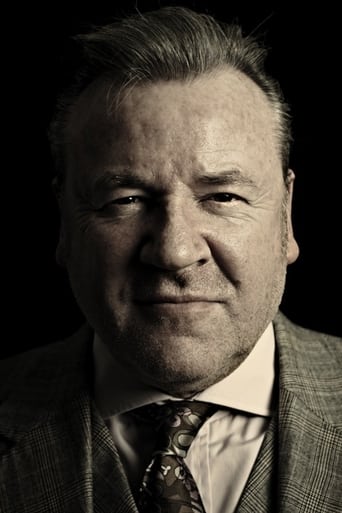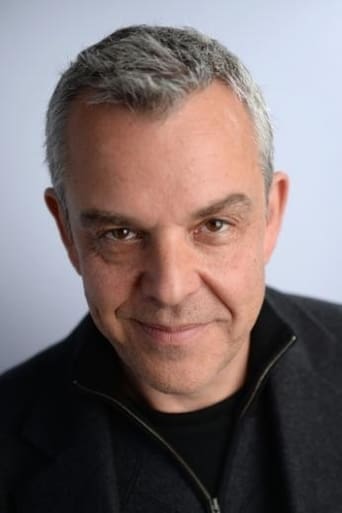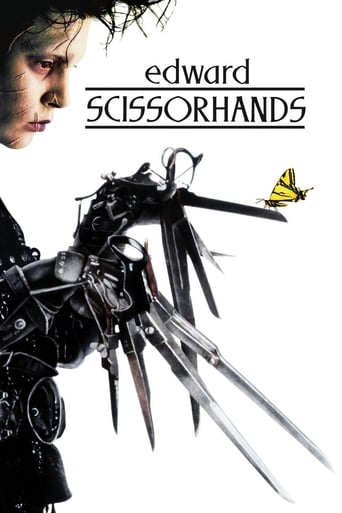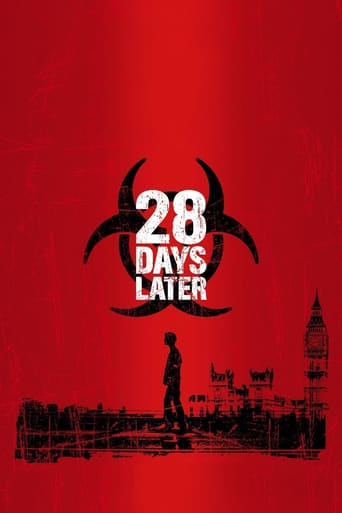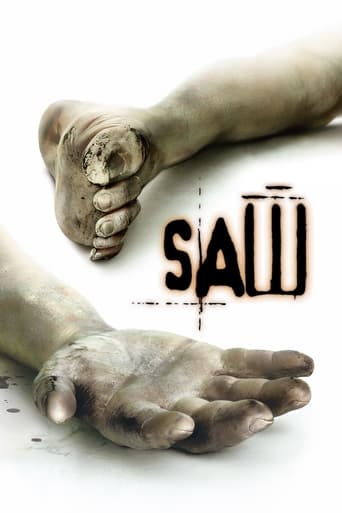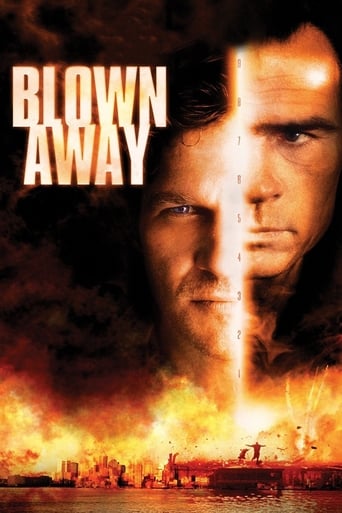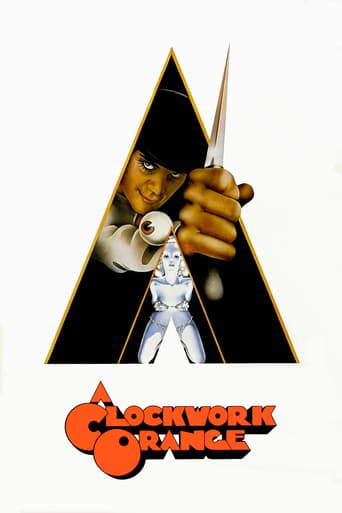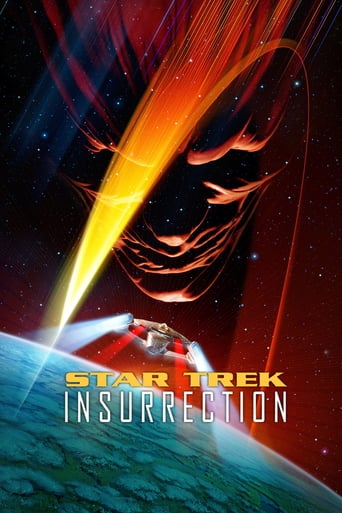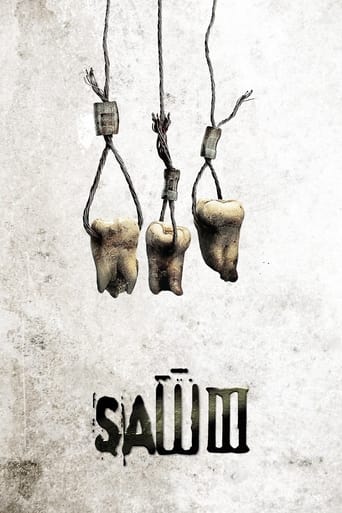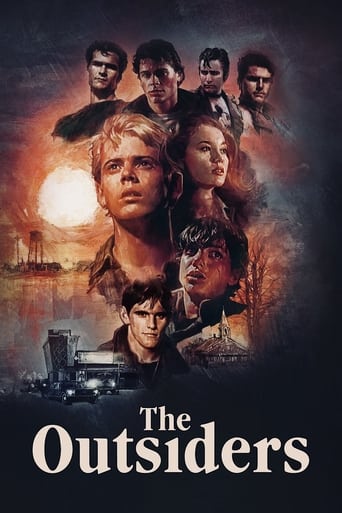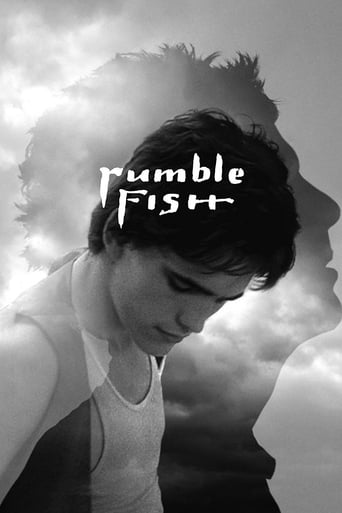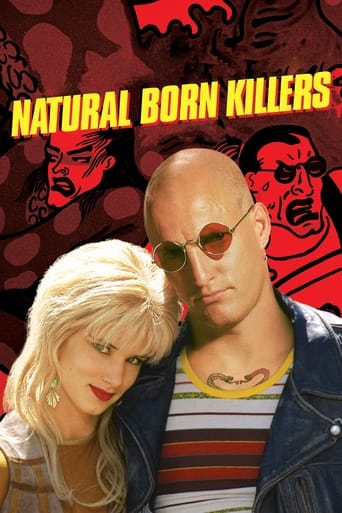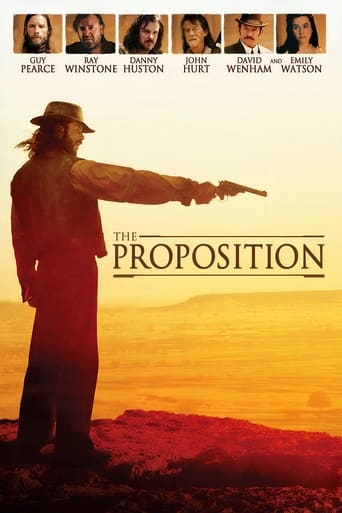
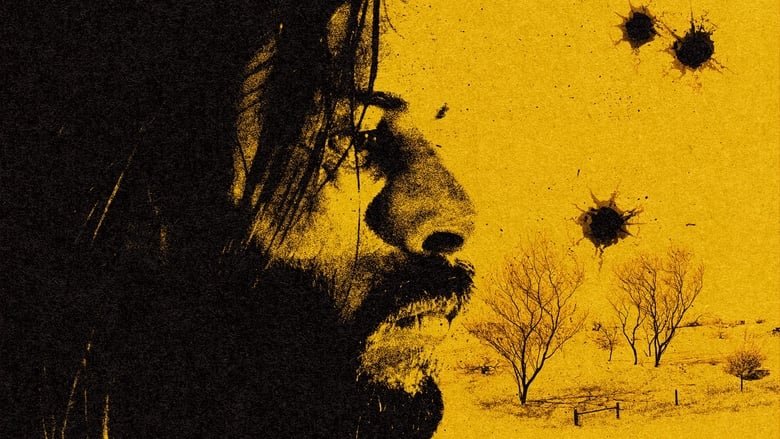
The Proposition (2006)
In 1880s Australia, a lawman offers renegade Charlie Burns a difficult choice. In order to save his younger brother from the gallows, Charlie must hunt down and kill his older brother, who is wanted for rape and murder. Venturing into one of the Outback's most inhospitable regions, Charlie faces a terrible moral dilemma that can end only in violence.
Watch Trailer
Cast


Similar titles
Reviews
When Sergio Leone took a Kurosawa script and a tiny budget in the 60s and made a pulpy, full-blooded Spaghetti Western and re-established a dying genre, he filmed in Spain. The idea was that the sparse scenery of the setting represented the American frontier as well as any location in the heartland could, and he was right. Viewing The Proposition makes me wonder how it took so long for another director to apply this idea to the Australian Outback. In this country we have clustered columns of civilisation along the greener coasts, and a great central desert where at any time you could be hundreds of kilometres from the nearest settlement. Gone are the sweeping, widescreen vistas of John Ford; in their place are smaller, flatter hills that function as their own miniature version of Monument Valley. These mounds of earth do little to hide the endless and desolate horizon - it is terra nullius, land that has yet to be claimed, and in the settler's mindset, tamed. It is in this late period of the nineteenth century that John Hillcoat has captured the 'god-forsaken hole' in all its grime and short- lived glory. The setting is an unnamed town on the edge of British settlement, a proxy for the Western frontier; it could be anywhere in the outback because the camera shows no pathways leading in or out, only endless plains. The shots of the desert are awash with a dirt- red and yellow that signify the absence of life flourishing. Some of them remind me of the same locations captured in Roeg's Walkabout, which was abuzz with the hypnotic cacophony of the bush. This film is quieter. The residents speak very little, as if the outback has sapped their strength and conviction to do more than necessary to survive, and they have blended into the scenery and retreated into shade like a tiny horned lizard to find some solace from the sweltering sun. There is exhaustion etched into their faces. They know that they live in the origins of a convict colony, and a mere step backwards could send them all back to that state. So they pursue justice in the brief periods where it pops up as a viable pathway. Captain Stanley and his wife have the noblest of these intentions, and slowly we witness as they wither in the sun like all the other characters have done so in the past. Martha, played by a trembling Emily Watson, marks a small spot in the dirt and attempts to recreate what she wished was their home with a wilting rose garden and Victorian dress. When the pair have a lavish dinner towards the end of the film, they shut all the windows and doors and submerge themselves into that white picket fence dream, with less than successful results. Delhomme returns several times to the iconic Searchers-type shot of the camera placed in the darkened interiors of the homestead, peering out at the sun-beat exterior. At times, it seems to be almost trying to retreat and hide, to no avail. Opposing them are the recurring shots where the scene drifts along the outback, combining with a mournful fiddle and whispers of a poem doting on what it sees: the earth dry as a bone, the sun melting the ground, the river that refuses to run.These seem to align along with the perspective of the Burns brothers, who drip with sweat and have beards that rival the scraggly desert bushes themselves, but are the least bothered by the heat. Indeed they relish it, and the shots where they sit and witness the sunset are by far the most picturesque of them all. Hillcoat, with these two alternate depictions of the setting, wants to create conflict that reflects the Burns' renegade lifestyle and which makes them shimmer vibrantly within the weary outback, but he isn't overt enough to sell this idea. The wide sunset shots, framing Uluru under the yellow orb, border on parody instead of being subversive, and become merely pretty pictures (the moments of calm before a thunderstorm are also similarly gorgeous). Pearce and Huston both look the part, but the whispers of their foul deeds overshadow their actual actions, so we have little to refer to when it comes to judging them (and therefore, it dilutes Charlie's final decision). This may be an unintentional effect of the nature of these stories, where legend often subsumes reality, and an ordinary criminal figure becomes a demon. This is one of the reasons that film keeps returning to Wyatt Earp.Instead I come to Stanley as the more interesting character. He alone seems to know the price of descending back into savagery, and although his methods might be akin to making a deal with the devil, they have a logic that the other methods do not. The culmination of these come when Mikey is dragged out to be given a hundred lashes, or what is basically a death sentence, and Stanley, so rough and ragged that he might be mistaken for a fourth Burns brother himself, takes the side of the criminal over mob justice. The grisly closeup of the whip's tassels needing to be wringed out because of the blood, and the slowly dispersing and once defiant crowd are the final justification for his argument, but a little too late. Ray Winstone intrigues us because he plays a familiar character, the gruff 'order around here' policeman, but reveals a personal conviction underneath the cracks. We sense that he plays this part because no one else can do it, and therefore has to make extreme concessions in order to pave the way for progress. And yet when Martha asks him to imagine that it was her that had been raped and murdered, he wilts like all the others around him, because he too has something that he cares about and would momentarily, in the heat of emotion, compromise his values for.
A good ten years have passed since last I saw "The Proposition", and it'll probably be another ten before I watch this again. But knowing how cold and evil this movie is does help you enjoy the more subtle things like character and story. There are some nice performances here (John Hurt was a highlight) and I found myself wishing the story would move away from Guy Pearce and back to Ray Winstone. The story itself is as Western as they come: retribution, justice, misanthropic family. Fairly simplistic. It's not a bad movie, and it does plunge you into the brutal Australian outback where society lives on the raggedy edge.But it is, first and foremost, a nasty affair. The violence runs grisly, and when the blood isn't flying, the sound design picks up the slack and your imagination does the rest.Not my thing.5/10
Captain Stanley captures two notorious outlaw brothers Charlie and Mickey Burns . He makes a proposal to Charlie . If Charlie goes and kills the leader of their gang Arthur Burns and brings his body back they will be given an amnesty . If not Mickey will be hung on Christmas day which is nine days away You always know what you're going to get with a film by Australian director John Hillcoat namely strong memorable drama that's best viewed with a ready supply of anti-depressants . You also know what you're not going to get , laughs , mirth and a strong narrative drive . Certainly both GHOSTS OF THE CIVIL DEAD and THE ROAD suffered slightly from a lack of a strong narrative drive and in this British produced pseudo Western set in 19th Century Australia there's also a sign of this flaw from the director The premise is one that grabs you and leads you to ask what you would do in that situation but as soon as Charlie leaves town on his quest the story meanders slightly as we're shown lots of panoramas of the Australian outback with a vague mystical air which will remind you of Australian cinema of the 1970s where the landscapes were the stars of the movie . One also gets the feeling in the first third that you're might be watching an Aussie version of APOCALYPSE NOW where a man with a mission involving extreme prejudice finds his target building an empire amongst the natives This doesn't happen thankfully and after a slightly unfocused first 40 minutes the story gets back on track with characterisation coming to the fore . THE PROPOSITION is much more character driven than the premise promises . There is a slight cop out in that Mickey is the poor unintelligent younger brother who has merely tagged along with the gang through family peer pressure and while Arthur isn't portrayed by Danny Huston as a stock psychotic villain with staring eyes and manic laugh his actions do more than enough to convince the audience that this rabid criminal dog needs to be put out of his misery . The characterisation between the good younger brother and the violent bad older brother could been written and developed as a bit more grey but there again it might have made it more difficult to cheer on Charlie the middle brother played by Guy Pearce The cast are excellent and special mention goes to Ray Winstone who is a national institution in Britain and watching him here you're aware of how underrated he is and gives a depth to Captain Stanley a man tormented by trying to uphold the law without giving in to rough justice from the locals . It's perhaps difficult to believe a rough working class bloke would be married to Emily Watson's rather middle class Martha but Watson does manage to project an innocence that seems out of place but that's undoubtedly the point . One character that did puzzle me was Jellon Lamb . John Hurt of course steals the show every scene he appears in but is there any point to the character except to spout Darwin ? it's a slightly confused and unnecessary character And THE PROPOSITION is a slightly confused film that stops it from attaining true classic status . It's a bleak nihilistic character study from John Hillcoat and contains all the strengths and weaknesses from the director's prior and future work . That said it's much better than most of the films the UK Film Council insist on wasting their money on from the same period
The Outback, as well as "The Proposition," is just as punishing and unforgiving as the men who roam it -- and it's savagely entertaining. The film takes all the familiar ingredients of the Western with an Aussie spin. Unlike your typical Western movies, it's much darker, downbeat, and brutally violent. Set in rural Australia in the late nineteenth century, Charlie Burns (Guy Pearce) is a criminal living in the outback. He and his two brothers, Arthur (Danny Huston) and Mikey (Richard Wilson), are outlaws wanted for rape and murder. Arthur is a violent and dangerous cold-blooded sociopath, much more so than his siblings, and is wanted by the law. The authorities capture Charlie and Mikey after a bloody shootout, and the brothers are handed over to Captain Stanley (Ray Winstone), a British lawman sent to Australia to help bring order to the colonies. The Captain's proposition to Charlie is to gain a pardon for both of the brothers, by tracking down the elusive Arthur and killing him. Charlie scours the backwaters of Australia, but isn't certain if he can carry out his mission. A movie you cannot turn away from; heartless and uncompromising, filled with disregard to innocence and civility.One of the strengths of "The Proposition" is its relentless moral ambiguity. Characters that would be heroic in more conventional Western movies show their darker sides here. It's a tough and uncompromising story, but it's superbly written, features terrific acting on all fronts, and its beautiful cinematography captures this desolate landscape where only the strongest survive.


